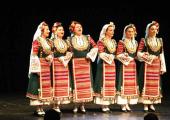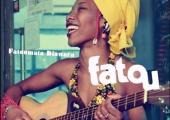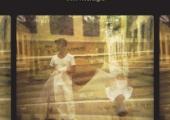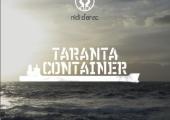Le Mystère des Voix Bulgares, Barbican

Charming and moving Soviet versions of Bulgarian pagan music
Some countries have a particular talent for choral music. Georgia, for example, has wonderful choirs, as does South Africa and, it seems, Bulgaria. Unfortunately, due to the expense of touring, we hardly get to see them. So when Le Mystère de Voix Bulgares, the female choir who embody the strange and powerful music of their homeland, came to town last night, lovers of global choral music were out in force.









